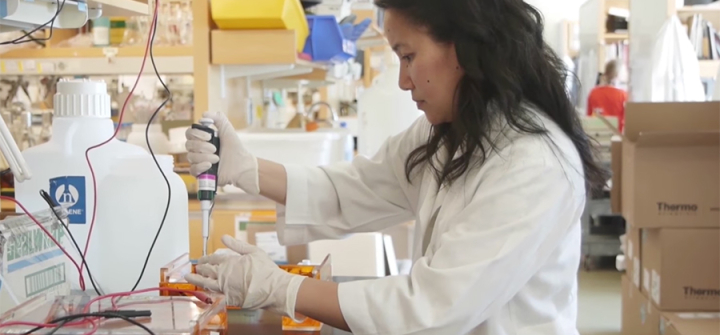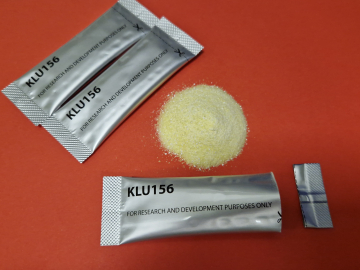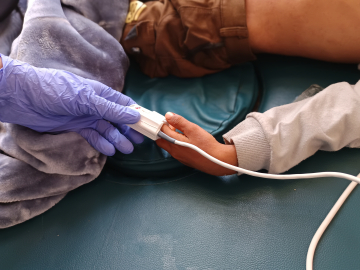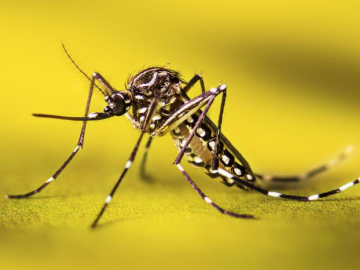New 'MalariaX' Course Brings Malaria Education into Focus
This summer, faculty from 3 academic institutions with deep knowledge and experience in malaria developed MalariaX—a new, free online global health course. Thinking back to my experience as a young scientist learning about the disease, I hope MalariaX will help bring this sense of wonder, fascination, and urgency to others across the globe.
I remember those early days as clearly as today. My passion for studying malaria began when I was a brazen young postdoc in Walter Gilbert’s molecular biology lab at Harvard University, listening as senior faculty members gave talks, one by one, at our departmental retreat in Woods Hole.
Then Harvard Professor Konrad Bloch, a talented chemist who later won a Nobel Prize for his work on cholesterol metabolism, took the lectern. Instead of discussing his latest research, he spoke about a recent meeting at the WHO. He had been invited to advise on new therapeutic approaches to a major public health problem: malaria.
Bloch described the biology of the disease and its overwhelming impact, particularly on children in Africa. As he talked about the parasite that causes malaria—clearly captivated by its ability to bore into red blood cells and establish residence—I began to grasp its unique scientific challenges and the global significance of malaria. Even more, I, too, became fascinated by the malaria parasite. I was struck by how little we knew, mechanistically, and how that lack of knowledge was stymying drug discovery and costing millions of lives.
Bloch’s presentation that day led me to dramatically alter the course of my own research and career on parasitic diseases. It was a radical move—one I would not recommend now to my own trainees—but I’ve never looked back, and as a result have focused my laboratory on the fundamental study of the malaria parasite.
Now, some 40 years later, the scientific community has made some impressive strides in our knowledge of malaria and the parasites that transmit it. These parasites lead complex lives and are highly adaptable, with capabilities to thwart drugs and evade the immune system, leading to drug resistance and hindering effective vaccine development. Through decades of research, both in my own lab and others across the world, we have exposed the parasites’ molecular secrets.
Of course, we have more to uncover, but the primary goal—malaria elimination and eradication—is no longer beyond reach. Indeed, it is both amazing and sobering to consider that the “last mile” of malaria elimination and eradication is being realized in many countries. Sri Lanka was once one of the most malaria-affected countries, just under a year ago; in September 2016, it was certified by the WHO as having eliminated malaria.
Just as research is essential, so, too, is education—as that fateful day in Woods Hole reminds me. As part of Harvard University’s wide efforts to advance malaria control and eradication, the Harvard T.H. Chan School of Public Health maintains a deep and ongoing commitment to education and training in this area.
Each year, we host a 6-day, face-to-face, intensive leadership development course, led by the Barcelona Institute for Global Health, Harvard University, and Swiss Tropical & Public Health Institute. The “Science of Eradication: Malaria” course gives a select group of mid-career professionals a multidisciplinary perspective on disease eradication.
Now, the core curriculum from this course—“evergreen” topics such as the biology of malaria, genomic approaches to malaria elimination, the dynamics of malaria transmission, and others—is freely available as a 8-part, self-paced online course on the edX global learning platform. This new online course, called "(PH425x) MalariaX: Defeating Malaria from the Genes to the Globe," offers a basic toolbox of knowledge and skills, including the effective use of real-world data as well as problem-solving and analytical approaches to design and implement intervention strategies that advance local and national malaria eradication efforts.
It is a valuable and timeless resource that I believe will help educate and train a new generation of public health leaders, who are responding to the challenges of malaria around the world. Maybe it will even ignite the interest of an unsuspecting postdoc.
Dyann F. Wirth, PhD, is Richard Pearson Strong Professor and Chair of the Department of Immunology and Infectious Diseases at the Harvard T.H. Chan School of Public Health.
Join the thousands of subscribers who rely on Global Health NOW summaries and exclusive articles for the latest public health news. Sign up for our free weekday enewsletter, and please share the link with friends and colleagues: http://www.globalhealthnow.org/subscribe.html
MalariaX Course Trailer




